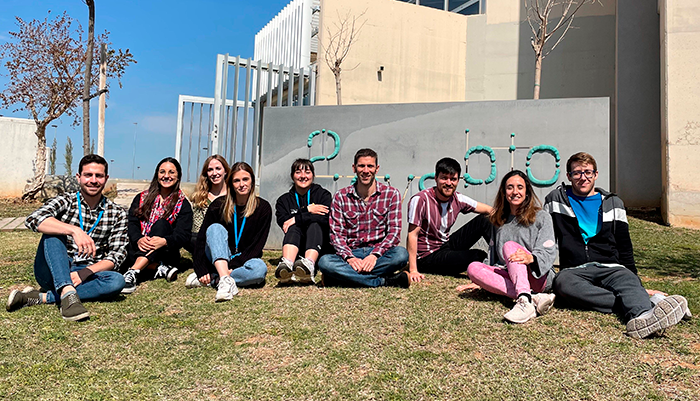
RNA viruses are responsible for many important human and animal infections. They cause tremendous global morbidity and mortality and include many emerging pathogens that could result in new pandemics, as happened with SARS-CoV-2. RNA viruses are unique, having generally small genomes and very high mutation rates that let them rapidly adapt to new environments. In the lab, we study different RNA viruses to better understand their biology and to identify new means of controlling virus infections.
Below are some of the current projects we are working on:
Global understanding of how mutations affect viral biology
Recent technological tools now allow for generating virus populations harboring all possible single amino acid mutations and defining their effect on virus growth. For the first time, these systems biology approaches provide a means to obtain a global understanding of how mutation impact viral biology and pathology. Using these approaches, we are currently defining the effects of thousands of mutations across the genome of RNA viruses. This work combines cutting-edge molecular biology tools, combined structural, sequence, and modeling tools to understand and predict the effects of mutations. In addition, we use these highly diverse populations to understand mutations that give rise to novel functions, such as the evolution of drug resistance or resistance to inactivation by high temperatures, or to examine escape from immune responses.

Understanding the effects of mutations in the SARS-CoV-2 spike protein on virus biology and immune responses
SARS-CoV-2 has shown a remarkable ability to adapt, and numerous variants have been observed to sweep through the population. Understanding the biological effect of these mutations on virus biology and immune escape is key to employ appropriate public health measures. To be able to assess the role of mutation in the spike protein of SARS-CoV-2, we combine both replication-competent and incompetent systems that let us judge the infectivity, stability, and immune escape of different Spike mutants. This work is performed in collaboration with numerous research groups and hospital staff to be able to evaluate new mutations in real time.

Discovery of novel antivirals
The majority of viral infections lack any treatment. Hence, novel antiviral treatments are desperately needed. We are currently employing high-throughput screening platforms to identify inhibitors of important RNA viruses, including SARS-CoV-2, respiratory syncytial virus, picornaviruses, and influenza virus. We perform work under biosafety level 2 and biosafety level 3 conditions and are among the few groups in Valencia working with the actual SARS-CoV-2 virus. For promising antivirals, we perform experiments to understand how each compound works and to examine if resistance to these can evolve rapidly. This work is done in collaboration with numerous groups, including chemists, computational biologists, and structural biologists.

Improvement of cancer-killing viruses
Some viruses kill cancer cells but do not infect healthy cells. Hence, they can be used as a cancer treatment. However, all of these virus-based treatments are limited by the fact that after the first administration, the host immune response produces antibodies that limit the ability of new administrations to work. We are currently collaborating with an industry partner to look for new ways to overcome this problem and improve this type of oncolytic virus therapy.












